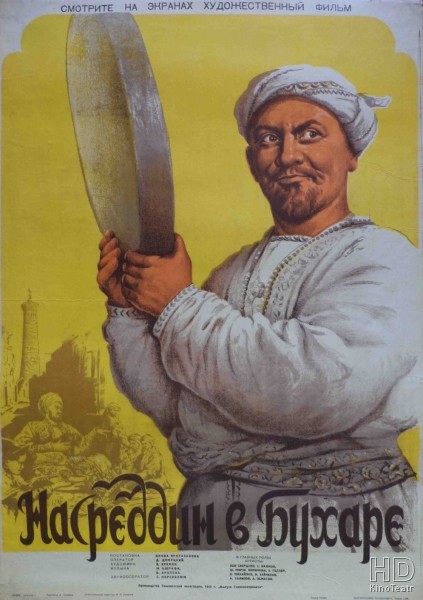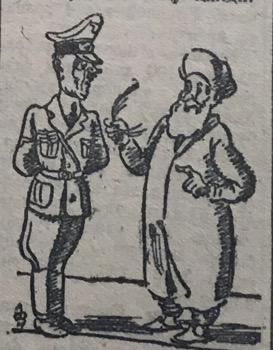“Nasriddin in Bukhara and Berlin: Humor, Empire, and the Soviet Union at War”
November 28, 2017
CASI Presents “Literature Week”
Literature Week is a part of CASI’s Workshop on Literature and History. Supported by a generous contribution from Matthew Nimetz, the aim of the workshop is to create a community of junior scholars and advanced graduate students committed to studying literature and to applying literary tools and methodologies to the study of literary art in the Central Asian past.
SPEAKER: Charles Shaw, Central European University
Abstract: What was Nasriddin afandi, the trickster of the Islamicate world, doing at the heart of Soviet culture during its war with Nazi Germany? This talk discusses Nasreddin in Bukhara (1943), the last film of Soviet director Yakov Protazanov, which was filmed in evacuation Uzbekistan and starred an array of Soviet acting elites.It then discusses Nasriddin’s appearance in Uzbek-language Red Army newspapers, in which the joker and his donkey were depicted poking fun of Hitler and the Nazis. It proposes that Nasriddin was deployed as a cultural intermediary, first to introduce the Soviet East to evacuated audiences and, second, to represent Soviet civilization to the broader Islamic world. Finally, it considers the peculiar role assigned to Soviet humor, as a “weapon” to confront the Nazis and also a tool to integrate the multinational Soviet empire.


Bio: Charles Shaw is a social and cultural historian of the Soviet Union, with emphases on Central Asia, the Second World War, and comparative empires. His book project, When Muhamed Became Misha: Central Asia and the Soviet Empire at War, 1941-1953, examines how World War II transformed the Soviet empire and Central Asia’s place within it. The title references a 1945 letter from an Uzbek soldier to a teenage kolkhoz heroine in his native Fergana valley in which he employs both his given name – Muhamed – and his frontline nickname – Misha. The author’s split identification exemplifies the central question of the project, namely how to interpret the Sovietization of war, in what context it was created, and how it endured.
His next project, tentatively titled The Soviet Silk Road, will investigate Central Asia’s role in the Cold War by focusing on the emergence of a tourist infrastructure, architectural preservation, and Soviet oriental studies to explore the region’s status as a custodian of cultural traditions in common with its neighbors to the south.
Date: November 29
Time: 12:10
Venue: AUCA, Room 306
To attend, please register at https://goo.gl/45GVGk
